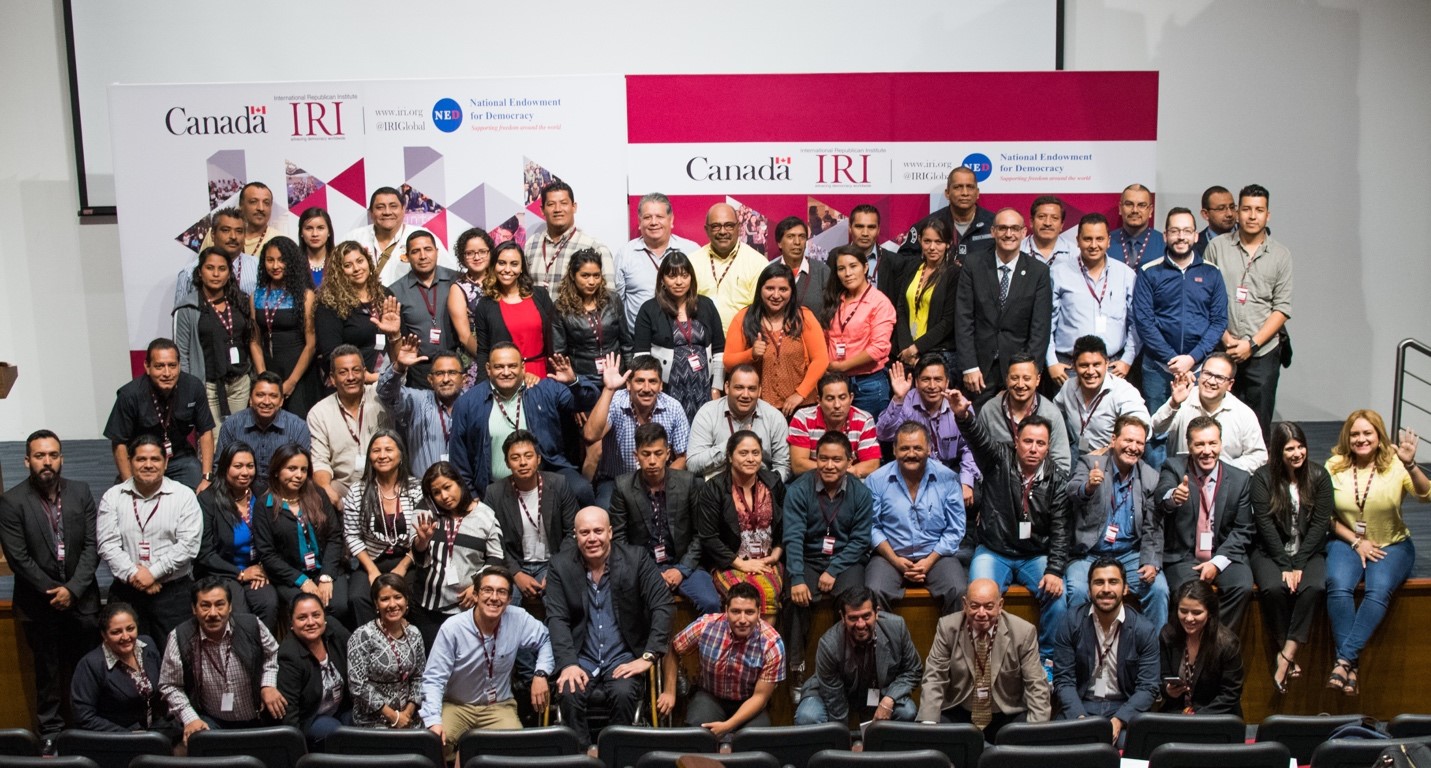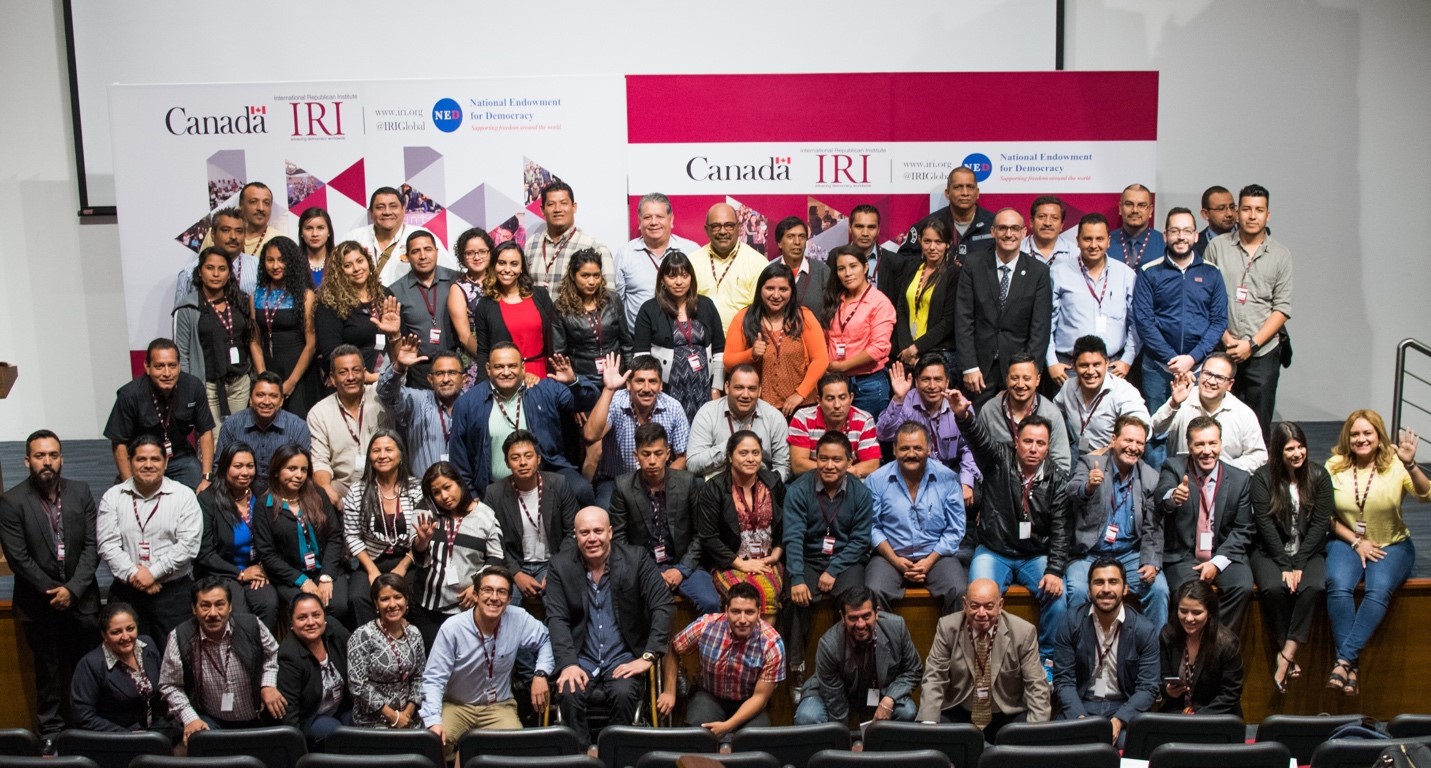Disruptive Approaches for Violence and Crime Prevention

Across the Northern Triangle countries of El Salvador, Guatemala, and Honduras, IRI collaborates with diverse stakeholders to enhance citizen-centered governance. By enabling local economic development engines, promoting transparency, public accountability, participatory budgeting, and by strengthening communication channels, IRI helps disrupt the status quo and boosts citizen buy-in for sustainable democratic governance.
IRI also seeks to do the same with citizen security by providing tools that help deny time and space for criminal or violent behaviors to take place at the local level. These include providing frameworks for citizens to better understand their roles and responsibilities, conflict resolution, encouragement of public private partnerships in crime prevention and the inclusion of vulnerable and marginalized populations—youth, women, indigenous and LGBTI. Through lessons learned, sharing of best practices, experiences, and technical consultancies, IRI works with citizens and public officials to create effective public policies that address local problems and provide adequate solutions.
In this spirit, IRI organized a two-day forum and interactive workshop, Disruptive Approaches for Violence and Crime Prevention (June 20-21, 2017), highlighting the Institute’s work on citizen security. Supported by the National Endowment for Democracy and Global Affairs Canada, participants from Chalchuapa and San Antonio Pajonal, El Salvador; Puerto Cortés, Concepción, and La Lima Honduras; and Salcajá, La Esperanza and Esquipulas, Guatemala learned about innovative, low cost initiatives to reduce crime and violence through citizen participation and stakeholder inclusion.
Citizen security practitioners from Panama, Costa Rica, Colombia, the United States, and Guatemala addressed cross cutting issues aimed at disrupting cycles of violence with a citizen-centric public health approach to violence prevention; inclusion of vulnerable, marginalized groups into the decision making process; use of data, victimization and perception polls for informing effective public policies; public-private partnerships; and community policing focusing on the rule of law and respect for human rights as a way to build trust and support between citizens and police.
Interactive workshops afforded an opportunity for partners to share best practices and experiences on their ongoing municipal security commission (MSC) strategies and action plans. Representatives from La Lima, Honduras, shared ideas on decentralization and efforts at creating a legal framework for establishing community oriented police, a major regional challenge. La Lima’s Franklin Brown also showcased their experience piloting an application, Veo & Prevengo (See & Prevent). This app allows citizens to report crime, while providing feedback, ideas, and solutions to these problems. Working with local tech activists from Salcajá, Guatemala, IRI has sought to build their capacity to support local governments find innovative ways to facilitate citizen involvement in generating ideas to respond, address and find solutions to local challenges via technology. Young activists shared their winning comunicathon idea for raising citizen awareness on accident prevention, Pedestrian Traffic Light/Pasos Seguros (Safe Steps), obtaining feedback from stakeholders on how to strengthen initiative. Serving as a liaison between civil society and relevant actors is another important component of the Institute’s push toward enhancing democratic governance.
During the two days, there were several important takeaways for disruptive approaches for prevention of crime and violence. Among them, how to generate strategic alliances, political will, inclusion among stakeholder communities, and improving the capacity to discern between perceptions and hard data to inform policies and design methodologies for community policing.
Franklin Asencio, from San Antonio Pajonal, El Salvador remarked, “the forum showed us how to better make decisions and facilitate dialogue for creating spaces, thus allowing citizens to actively participate in the formulation and implementation of violence prevention strategies.” Alex Ovalle from Salcaja, Guatemala, further opined, “we learned that programs, to be effective and long lasting, must be inclusive… actions should be low-cost, accessible and supported by the community.”
Through citizen-centered initiatives, IRI continues to address local governance challenges with national, international repercussions. Juntos Prevenimos, Decidimos y Avanzamos—Together we Prevent, Decide and Advance!

Top